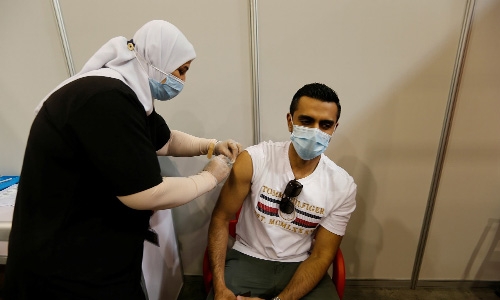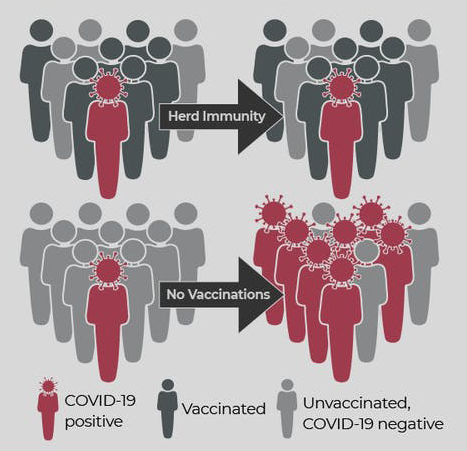Bahrain closes in on achieving ‘full community protection’ with safe and effective vaccines
TDT | Manama
The Daily Tribune – www.newsofbahrain.com
With the national vaccination campaign proceeding at a fast pace, Bahrain is on the right track to achieve full community protection, or herd immunity, against the coronavirus (COVID-19).
More than 80% of the Kingdom’s eligible population have already received the first dose of a vaccine and on its way to touching the one-million mark for those who have taken both jabs.
According to the Centers for Disease Control and Prevention (CDC), herd immunity, also known as ‘population immunity’ and ‘community immunity, is achieved when a sufficient portion of a population is protected from infectious disease through vaccination to make its spread from person to person in the community unlikely.
When the majority of people are vaccinated and become immune, those who are not immune benefit from the limited spread of the disease.
In essence, those with immunity act as a barrier or buffer around those without immunity, so that the infection is less likely to reach them.
The percentage of people who need to be immune in order to achieve herd immunity varies with each disease. In the case of COVID-19, experts estimate that herd immunity would require around 80% to 90% of the population to have COVID-19 immunity and get back to normal lives.
The Kingdom offers citizens and residents six free vaccines to choose from, namely Sinopharm, Pfizer/BioNTech, AstraZeneca’s Covishield, Johnson & Johnson, Sputnik V and Sputnik Light.
All these vaccines are safe and effective in boosting immunity and will help reduce the likelihood of infection and severity of symptoms.
The Kingdom’s mass vaccination efforts aim to inoculate a total of 1.5 million residents, around 712,000 of them are Bahrainis and 679,000 expatriates and provide them with a high degree of protection against the deadly virus.
The Health Ministry has increased its daily vaccination capacity to 31,000 doses across 31 vaccination centres. It is also expanding the vaccination campaign to include adolescents aged 12 to 17.
A community can be protected from an infectious disease such as COVID-19 through herd immunity. This means enough people in the community develop a resistance to the disease which prevents them from falling ill. This resistance means that the spread of the disease is slowed down throughout the community.
The goal is to get to a point where each infected person is unlikely to spread the disease to anyone else. This way the virus can be contained and will no longer be spreading within a population. Calculating herd immunity depends to some extent on the number of people in a population that have natural immunity.
But the catch is that we don’t yet know for how long that protection lasts – and the same is true for people who develop immunity through vaccination.
There is, however, some promising studies worldwide emerging that show protection could potentially last for several years. But for now, health experts say that vaccine immunity lasts for six months. Why? Because COVID-19 vaccines haven’t been around for long enough. It would require a longer period of time to gauge how effective vaccines are in the long run.
This matters for herd immunity because it affects how often people would need to get vaccinated to remain protected against COVID-19.
Related Posts


